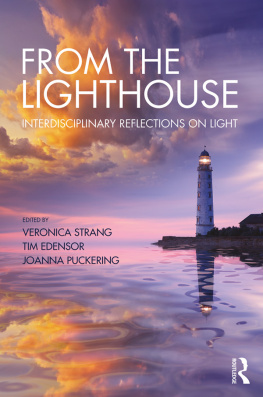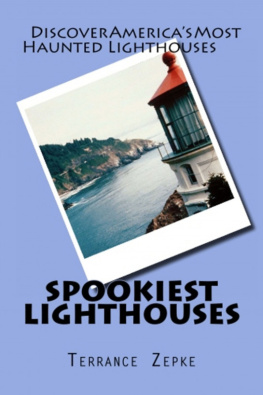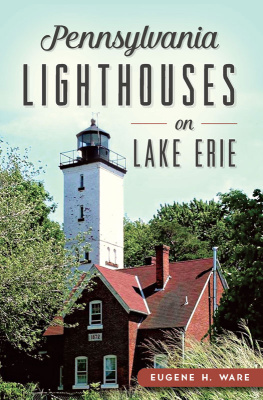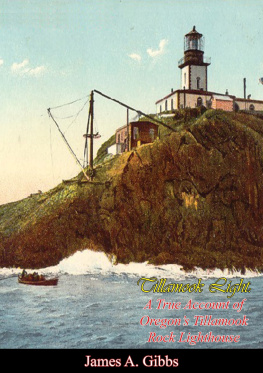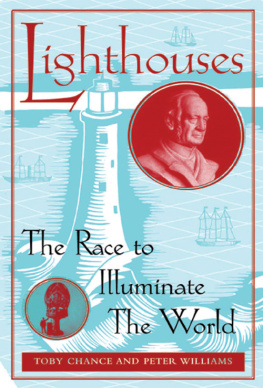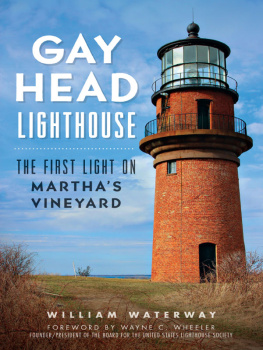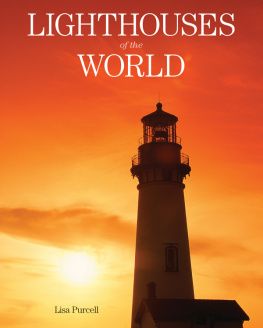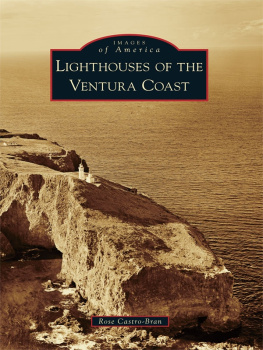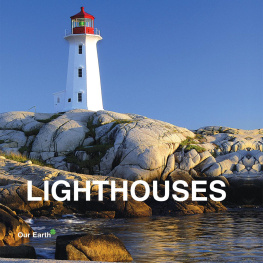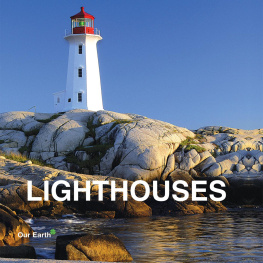p.i
From the Lighthouse: Interdisciplinary Reflections on Light
What is a lighthouse? What does it mean? What does it do? This book shows how exchanging knowledge across disciplinary boundaries can transform our thinking. Adopting an unconventional structure, this book involves the reader in a multivocal conversation between scholars, poets and artists. Seen through their individual perspectives, lighthouses appear as signals of safety, beacons of enlightenment, phallic territorial markers, and memorials of historical relationships with the sea. However, the interdisciplinary conversation also reveals underlying and sometimes unexpected connections. It elucidates the human and non-human evolutionary adaptations that use light for signalling and warning; the visual languages created by regularity and synchronicity in pulses of light; how lighthouses have generated a whole family of related material objects and technologies; and the way that light flows between social and material worlds.
Veronica Strang directs Durham Universitys Institute of Advanced Study and is the author of The Meaning of Water (2004), Gardening the World: Agency, Identity and the Ownership of Water (2009) and Water: Nature and Culture (2015).
Tim Edensor belongs to the Geography Department of Manchester Metropolitan University and is the author of From Light to Dark: Daylight, Illumination and Gloom (2017), Industrial Ruins (2005) and editor of Geographies of Rhythm (2010).
Joanna Puckering works for Durham Universitys Institute of Advanced Study. Joanna completed her PhD at the Department of Anthropology, Durham University.
p.iv
First published 2018
by Routledge
2 Park Square, Milton Park, Abingdon, Oxon OX14 4RN
and by Routledge
711 Third Avenue, New York, NY 10017
Routledge is an imprint of the Taylor & Francis Group, an informa business
2018 selection and editorial matter, Veronica Strang, Tim Edensor and Joanna Puckering; individual chapters, the contributors
The right of Veronica Strang, Tim Edensor and Joanna Puckering to be identified as the authors of the editorial material, and of the authors for their individual chapters, has been asserted in accordance with sections 77 and 78 of the Copyright, Designs and Patents Act 1988.
All rights reserved. No part of this book may be reprinted or reproduced or utilised in any form or by any electronic, mechanical, or other means, now known or hereafter invented, including photocopying and recording, or in any information storage or retrieval system, without permission in writing from the publishers.
Trademark notice : Product or corporate names may be trademarks or registered trademarks, and are used only for identification and explanation without intent to infringe.
British Library Cataloguing-in-Publication Data
A catalogue record for this book is available from the British Library
Library of Congress Cataloging-in-Publication Data
A catalog record has been requested for this book
ISBN: 978-1-4724-7735-4 (hbk)
ISBN: 978-1-315-58357-0 (ebk)
Typeset in Times New Roman
by Swales & Willis Ltd, Exeter, Devon, UK
p.xvi
Veronica Strang directs Durham Universitys Institute of Advanced Study (IAS). She is an environmental anthropologist whose research focuses on water and sustainability, and includes work with the United Nations. From 20132017, she was Chair of the Association of Social Anthropologists of the UK and the Commonwealth. She is regularly involved in major collaborative projects, and has written extensively on interdisciplinarity. In 2017, she was appointed to the Higher Education Funding Council for Englands national Interdisciplinary Advisory Panel.
Tim Edensor is the author of Tourists at the Taj (1998), National Identity, Popular Culture and Everyday Life (2002), Industrial Ruins: Space, Aesthetics and Materiality (2005) and From Light to Dark: Daylight, Illumination and Gloom (2017) as well as the editor of Geographies of Rhythm (2010). Tim has written extensively on national identity, tourism, ruins and urban materiality, mobilities and landscapes of illumination and darkness.
Joanna Puckering is a Research Associate at Durham University in the Department of Anthropology, where she completed her PhD thesis on volunteering and community engagement in UK Higher Education, seen through the lens of reciprocal gift exchange. Research interests include contested meanings and uses of community, and the intersection of material culture with mental health. She currently works for Durham Universitys Institute of Advanced Study.
***
Peter Adey , Professor in Human Geography at Royal Holloway, University of London, works at the intersections of space, security and mobility and within the blurring boundaries between Cultural and Political Geography. He has published widely in academic journals and edited collections; books include Mobility (2009) and Air (2013). In 2011, he was awarded a Philip Leverhulme Prize. Peter was an IAS Fellow in 2014, developing his research on aerial security.
Jennifer Lucy Allan is a writer and researcher who works with physical archives, unearthing sensory material in the historical record. She is writing a PhD at Creative Research into Sound Arts Practice, University of the Arts London, on the social and cultural history of the foghorn, and is also a journalist, specialising in experimental and underground music. She contributes regularly to The Guardian and The Wire , and co-founded the reissues record label Arc Light Editions.
p.xvii
Lise Autogena is a Professor of Cross-Disciplinary Art at the Cultural Communication and Computing Research Institute (C3RI), Sheffield Hallam University. In 2013, she worked with Joshua Portway to develop Foghorn Requiem , a requiem for a disappearing sound, performed by the Souter Lighthouse foghorn, three brass bands and fifty ships on the North Sea.
Ulisses Barres de Almeida is an astrophysicist at the Brazilian Center for Physics Research (CBPF), leading the Astro-particle Physics Group. He graduated from the University of So Paulo in 2003 and obtained his PhD in Astrophysics from Durham University in 2010. From 20102012, he was a post-doc at the Max-Planck-Institut for Physics and is currently leader of the Cherenkov Telescope Array Consortium in Rio. Ulisses Barres was an IAS Fellow in 2014.
Rob Barton studied Psychology and Zoology at Bristol University. He has been interested in research at the intersection of evolutionary biology, psychology and cognitive neuroscience. He is Professor of Evolutionary Anthropology, founder of Durhams Evolutionary Anthropology Research Group, and has been President of the European Human Behaviour and Evolution Association. His PhD was on the behavioural ecology of wild baboons, but he now focuses on the evolutionary biology of the brain.
Brian Bowers , a chartered engineer and historian of technology, was Curator of the lighting, electrical engineering and domestic technology collections in the Science Museum, London. He has written and lectured extensively on these subjects in Britain and abroad. He has served on various committees including the Council of the Royal Institution, and been an Examiner for the Open University. Publications include Lengthening the Day: A History of Lighting Technology .

